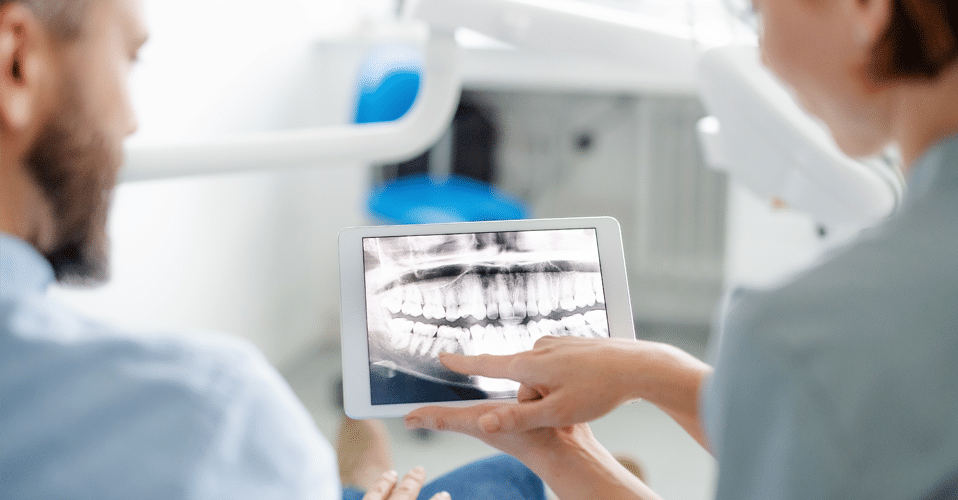An investigation made public at the Congress of the European Society of Cardiology (ESC 2021) makes clear the relationship between periodontitis and the risk of cardiovascular diseases.
In this sense, this study shows heart attacks with periodontal health and, in addition, shows that the more serious this periodontal disease is, the higher the risk of suffering from cardiovascular disease.
Although in the past a Swedish PAROKRANK study already demonstrated this certainty, now the prolonged follow-up of these patients has made it clear that the deterioration of the periodontal tissues in people with gum disease can be the gateway to germs in the bloodstream.
The study involved a total of 1,587 people with a mean age of 62 years.
After a dental check-up between 2010 and 2014, the results were:
- 985 healthy
- 489 moderate periodontitis
- 113 severe periodontitis
In this sense, the research followed up to detect any occurrence of any cardiovascular event, from myocardial infarction, non-fatal strokes, or serious heart failure.
All data were collected until the end of 2018 in the Swedish national registers.
In this 6.2-year period of the study, there were a total of 205 events of this type and, it was shown, that people with periodontitis were 49% more likely to suffer one of these events.
It is clear, in this way, that good dental health is not only synonymous with aesthetics and oral health, but also affects our general state of health.
“The risk of suffering a cardiovascular event during follow-up was higher in the participants with periodontitis, increasing in parallel with the severity; This was especially evident in patients who had already suffered a myocardial infarction. ‘ In addition, the expert has suggested that “damage to periodontal tissues in people with gum disease can facilitate the transfer of germs into the bloodstream, which could accelerate harmful changes in blood vessels and / or increase the systemic inflammation that it is harmful to blood vessels ” Dr. Giulia Ferrannini, principal investigator and worker at the Karolinska Institute in Stockholm (Sweden)
Dr. Ferrannini also concludes that “Our study suggests that dental screening programs, which include regular check-ups and education on proper dental hygiene, can help prevent early and late cardiac events.”

















